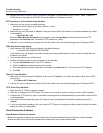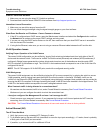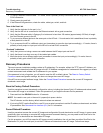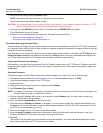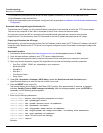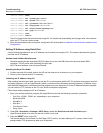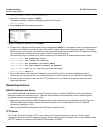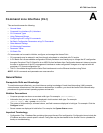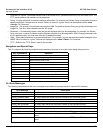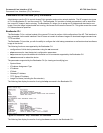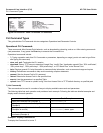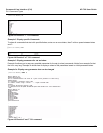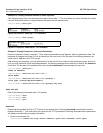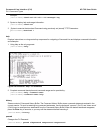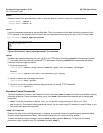
148
AP-700 User Guide
A
Command Line Interface (CLI)
This section discusses the following:
• General Notes
• Command Line Interface (CLI) Variations
• CLI Command Types
• Using Tables and Strings
• Configuring the AP using CLI commands
• Set Basic Configuration Parameters using CLI Commands
• Other Network Settings
• CLI Monitoring Parameters
• Parameter Tables
• CLI Batch File
CLI commands can be used to initialize, configure, and manage the Access Point.
• CLI commands may be entered in real time through a keyboard or submitted with CLI scripts.
•A CLI Batch file is a user-editable configuration file that provides a user-friendly way to change the AP configuration
through a file upload. The CLI Batch file is an ASCII file that facilitates Auto Configuration because it does not require
the user to access one of the AP’s management interfaces to make configuration changes as is required with the
proprietary LTV format configuration file.
• The CLI is available through both the Serial Port interface and over the Ethernet interface using Telnet.
NOTE: All CLI commands and parameters are case-sensitive.
General Notes
Prerequisite Skills and Knowledge
To use this document effectively, you should have a working knowledge of Local Area Networking (LAN) concepts,
network access infrastructures, and client-server relationships. In addition, you should be familiar with software setup
procedures for typical network operating systems and servers.
Notation Conventions
• Computer prompts are shown as constant width type. For example: [Device-Name]>
• Information that you input as shown is displayed in bold constant width type. For example:
[Device name]> set ipaddr 10.0.0.12
• The names of keyboard keys, software buttons, and field names are displayed in bold type. For example: Click the
Configure button.
• Screen names are displayed in bold italics. For example, the System Status screen.
Important Terminology
• Configuration Files - Database files containing the current Access Point configuration. Configuration items include the
IP Address and other network-specific values. Config files may be downloaded to the Access Point or uploaded for
backup or troubleshooting.



